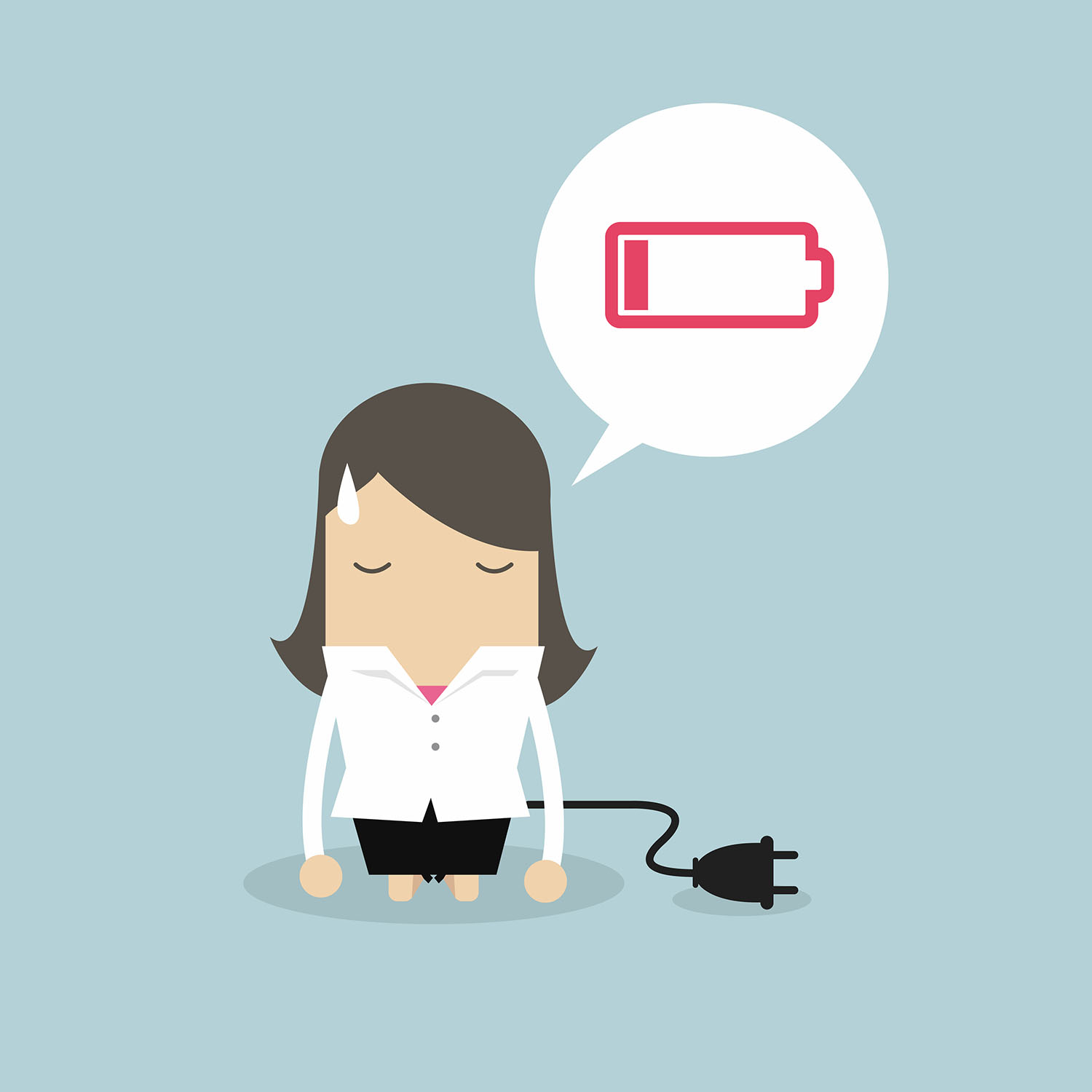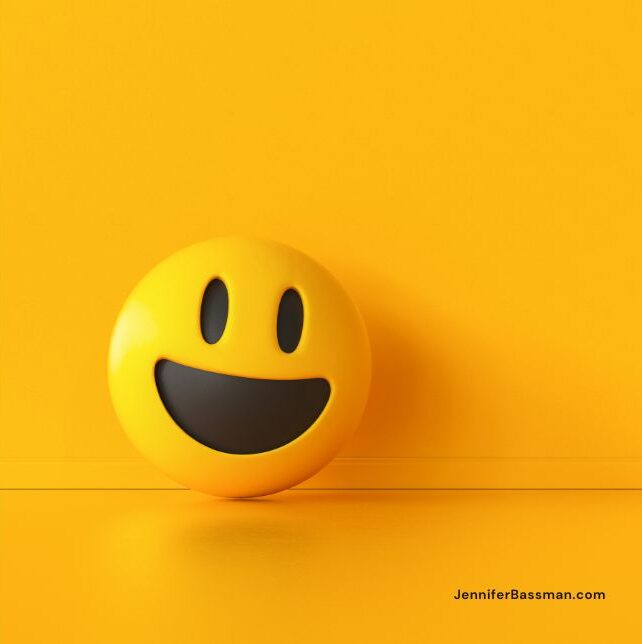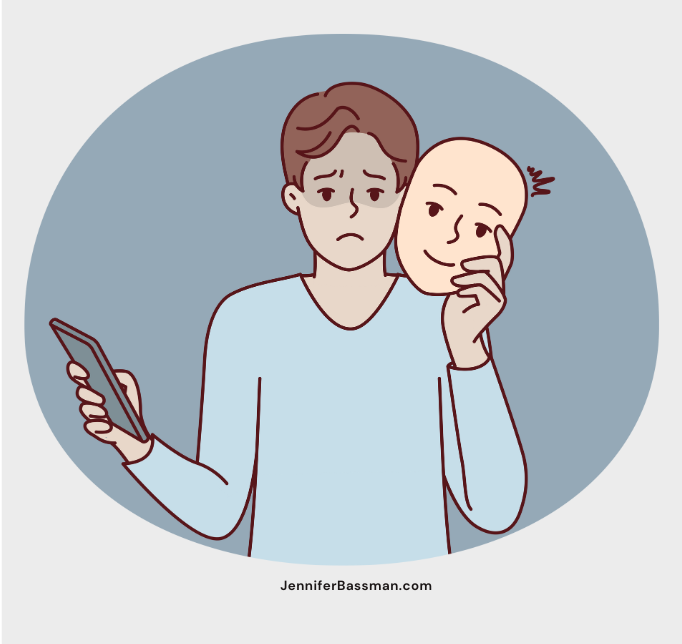Content creation and the influencer lifestyle are the epitome of the Hustle Culture. They also often lead to Content Creator Burnout.
The Hustle Culture is predicated on working harder, working longer, and pushing yourself beyond your means every day.
If you are creating content for social media, actually for anything, you feel a pressure to perform at a certain level. The more people like your content, the more likely they are to consume it. And, they usually want more. And more. And more…
You get the picture.
Many content creators find themselves backed into a corner to:
- Constantly produce and stay relevant
- Consistently produce fresh, new ideas
- Create content that doesn’t align with their values or their brand
- Appease a sponsor or a client
- Always be on and ready to respond
So, it’s not a shock to this burnout coach, that content creators burnout to the point they no longer want to produce content or they physically can’t.
What Is Content Creator Burnout?
Let me answer that by first defining what work burnout means. Work burnout is the emotional, mental, or physical exhaustion brought on by prolonged or repeated stress from work.
In a content creator, burnout can look like:
- It gets more difficult to create your content than usual
- You dread creating content for any reason
- Content creation is a burden
- Exhaustion
- Feelings of emptiness
- Cynacism
- Decreased quality in your work product
There is a churn in the work that begins to take over and grows to the point you can no longer keep up.
Why Do Content Creators Burnout?
Content Creator Burnout is very common. Content creation requires a lot of creativity and dedication. They are often seeking sources of inspiration, looking for the “next big thing,” researching and learning, or trying to figure out what their audience wants or needs to hear.
There is also a dark side to content creation: the toxic culture of the internet, of social media. Anonymous people can make negative comments, bully, harass, or shame content creators – and content creators have little to no protection from these things.
Stress and pressure can also come from a creator’s self-worth becoming dependent on external validation from their followers, producing content that is not authentic to their brand or values, and because their income is often tied to sponsorships which are tied to the number of views a creator gets.
As Quickly As Some Creators Rise, They Can Also Fall
There can be a bit of celebrity that comes with content creation. People around the world are seeing you and responding to your content. They are often complimenting creators and, in some cases, building up egos. The problem with this content creator celebrity is that it is inconsistent. Because of the way algorithms work, creators are only in front of people for a short amount of time. Sometimes, if viewers blink, they can even miss their favorite creator in their feed.
As soon as the attention comes, it’s gone. And content creators find themselves in a never-ending cycle trying to get it back.
This on again, off again unpredictability can be jarring. Then add in the financial instability that comes with it, and many content creators find themselves riding a rollercoaster of emotions almost daily.
“Well, They Asked For It”
A comment I find alarming when I read about content creators, is when they have tried to openly discuss their feelings of burnout. They are often met with negativity and comments like “well, you asked for it with a job like this.”
I have yet to coach a content creator that began creating content expecting bullying or harassment. They are well aware that people won’t like everything they do and that they can’t please everybody, but there is a certain type of inhumane negativity that content creators experience when they try to express their true emotion with followers that permanently cuts at a creator’s core.
Nor am I saying all content creators serve up joy and positivity.
I think when the personal attacks begin, a content creator can’t help but question why they are trying to serve an audience.
My Own Experience
I didn’t consider myself a “content creator” when I began putting my writing and videos on the internet. For a long time, I associated “content creator” with those crazy people all over YouTube or you had to have hundreds of thousands of followers.
I have refined my definition of “content creator” to anyone who puts content out on the internet – anywhere on the internet. Anyone who puts their content out for (public or private) consumption.
As of the time of writing this piece, I consistently create content on my blog, in my email newsletter, TikTok, Instagram, Facebook, LinkedIn, Pinterest, and Clubhouse.
Do I get negative feedback? Absolutely.
Do I get positive feedback? Absolutely.
Do I look forward to seeing how my audience responds to my content? Absolutely.
What I have noticed about myself, is that my creator burnout didn’t come from positive or negative feedback. It was the sheer amount of content I felt I needed to create to stay engaged or relevant to my audience.
Timing also had a lot to do with it. Burnout is a hot subject right now. I don’t want to miss this opportunity to educate and be a part of the discussion. But, I can’t serve people well if I’m not taking care of my own mental health or noticing the signs that I am wearing down.
How to Heal Content Creator Burnout
There is no easy or quick fix to this one. And, the solution is going to be different for everyone. The severity of the burnout matters, as well as, length of burnout, having to work at the same time as recovery… there are a lot of variables.
Most importantly: you can recover from burnout. But you’ve got to wanna do the hard mindset work and make the necessary work and lifestyle changes that will come along with it. (This is where most people fall off of the recovery path.)
Here are some tips:
- Understand where your stress is coming from. Is it the creative process? Is it the type of content? The subject matter? Fear of negative feedback?
When you can identify where the stress is coming from, it is easier to find relevant solutions. While it may be the whole process that has burned you out, it is worth identifying where or how it started, if there are one or two tasks that weigh more heavily than others.
- Take a break or cut back on the amount of content produced.
Taking a break – even a short one – can help you quiet the noise, give your brain a rest, and give you an opportunity to think clearly about your situation and possible solutions. If you can’t take a break, at least cut back on the amount and frequency of the content you are producing.
As you are building out a new routine, build out one that accounts for frequent breaks. Your brain needs time to rest and you need time to recharge your battery. Maybe you only produce content a certain number of days per week.
- Who said we “have to?” Acknowledge you deserve peace and happiness, that you deserve to enjoy your job without pressure so severe that your job makes you miserable.
I do think a lot of us feel as though we don’t have any other option, but to be miserable. Or that we promised our audience a certain type or amount of content. No. People change, circumstances change, the algorithms change – it’s okay for you to make a change that allows you to get your needs met.
- Create a picture of what your ideal life and career would look like when they work in harmony. How many hours per day do you want to work? How often do you ideally want to produce content? What types of content or subject matter are more aligned with your priorities?
When you are in the throws of burnout, it is hard to envision a life that doesn’t stress you out. But, give it time. The more you allow yourself to rest, the clearer the next steps will become. Stress clouds our judgment.
Manage expectations clearly – your own and those of your audience.
Your audience comes to your channel, your profile, your page, your website because of you. They enjoy your insight, your personality, and what you bring to the table. Communicate that you will be changing how you output. When people know what to expect, they can help support you. If they want you around for the long-haul, they will need to adjust their own attitude. If they can’t – that’s not your problem.
One of the biggest mindset shifts that people are burned out need to make: Only worry about what you can control – your own behavior, thoughts, and feelings.






